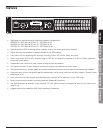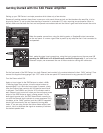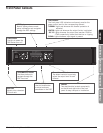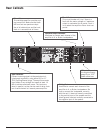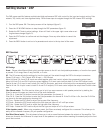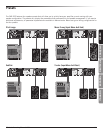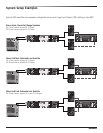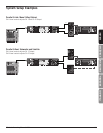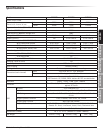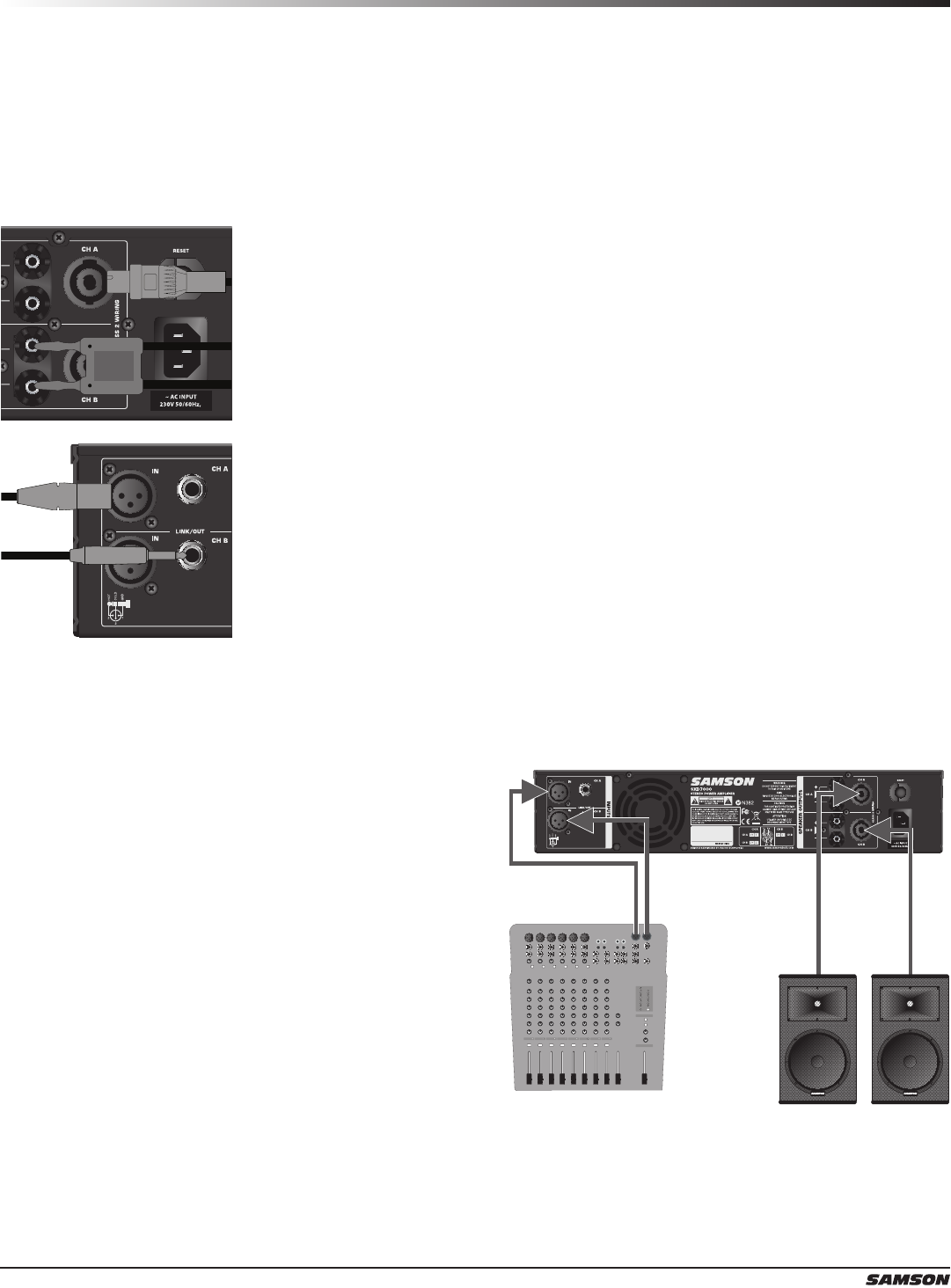
6
Getting Started with the SXD Power Amplier
Setting up your SXD Series is a simple procedure which takes only a few minutes:
Remove all packing materials (save them in case your units needs future service) and decide where the amplifier is to be
physically placed—it can be used free-standing or mounted in a standard 19” rack, requiring two rack spaces. When in-
stalled, make sure that both the front and rear panels are unobstructed and that there is good ventilation around the entire
unit.
Make the speaker connections, using the binding posts, or Speakon® output connectors
on the rear panel. It is never a good idea to power up any amplifier that is not connected to
loudspeakers.
Next, make the signal input connections, using the input connectors on the rear panel (if
operating the SXD Series in Ch A Parallel mode, use the Ch A input only). If your mixer has
balanced outputs, we recommend the use of three-conductor cabling and connectors.
On the front panel of the SXD Series, turn both Channel level controls fully counterclockwise (to their “MIN” setting). Then
connect the supplied heavy-gauge 3-pin “IEC” cable to the rear panel IEC connector and to any grounded AC socket.
Turn the Power switch ON.
Apply an input signal to the SXD Series at or about +4dBu
(if sending signal from a mixer, drive the output meters at
approximately 0 vu). While the input signal is present, slowly
raise the Channel level controls until the desired sound level
is achieved. The SIGNAL and Limiter LED indicators next to
each Channel input control will show you the continuous power
output of the SXD Series as signal is being passed. For the
best signal-to-noise ratio, the SXD Series should normally be
run with the Channel Input controls at or near maximum (fully
clockwise, at the “MAX” position) and the LIMITER segments
should light occasionally (but not frequently) during peak
levels. If you are using a mixer that has a master output level
control, use it to attenuate the signal as necessary to achieve
the desired speaker level.
P
R
E
S
S
T
O
R
E
S
E
T
P
R
E
S
S
T
O
R
E
S
E
T
P
R
E
S
S
T
O
R
E
S
E
T







